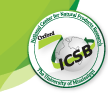Document Type
Oral Presentation
Location
Oxford Convention Center, 102 Ed Perry Boulevard Oxford, MS 38655
Event Website
https://oxfordicsb.org/
Start Date
16-4-2024 10:50 AM
End Date
16-4-2024 11:15 AM
Description
Current Federal law requires that a drug be the subject of an approved marketing application before it is transported or distributed across state lines. Because a sponsor will probably want to ship the investigational drug to clinical investigators in many states, it must seek an exemption from that legal requirement. The IND is the means through which the sponsor technically obtains this exemption from the FDA. During a new drug's early preclinical development, the sponsor's primary goal is to determine if the product is reasonably safe for initial use in humans, and if the compound exhibits pharmacological activity that justifies commercial development. When a product is identified as a viable candidate for further development, the sponsor then focuses on collecting the data and information necessary to establish that the product will not expose humans to unreasonable risks when used in limited, early-stage clinical studies. FDA's role in the development of a new drug begins when the drug's sponsor (usually the manufacturer or potential marketer), having screened the new molecule for pharmacological activity and acute toxicity potential in animals, wants to test its diagnostic or therapeutic potential in humans. At that point, the molecule changes in legal status under the Federal Food, Drug, and Cosmetic Act and becomes a new drug subject to specific requirements of the drug regulatory system. In this presentation, the audience will learn about the three IND types (Investigator IND , Emergency IND, and Treatment IND), the two IND categories (Research and Commercial), and information that an application must contain (Animal Pharmacology and Toxicology Studies, Manufacturing Information, and Clinical Protocols and Investigator Information). The general process for IND submission will be presented along with resources to assist researchers wishing to submit an IND.
Recommended Citation
Taylor, Cassandra, "FDA Investigational New Drug (IND) Applications" (2024). Oxford ICSB. 14.
https://egrove.olemiss.edu/icsb/2024_ICSB/Schedule/14
Publication Date
April 2024
Accessibility Status
Searchable text
Included in
FDA Investigational New Drug (IND) Applications
Oxford Convention Center, 102 Ed Perry Boulevard Oxford, MS 38655
Current Federal law requires that a drug be the subject of an approved marketing application before it is transported or distributed across state lines. Because a sponsor will probably want to ship the investigational drug to clinical investigators in many states, it must seek an exemption from that legal requirement. The IND is the means through which the sponsor technically obtains this exemption from the FDA. During a new drug's early preclinical development, the sponsor's primary goal is to determine if the product is reasonably safe for initial use in humans, and if the compound exhibits pharmacological activity that justifies commercial development. When a product is identified as a viable candidate for further development, the sponsor then focuses on collecting the data and information necessary to establish that the product will not expose humans to unreasonable risks when used in limited, early-stage clinical studies. FDA's role in the development of a new drug begins when the drug's sponsor (usually the manufacturer or potential marketer), having screened the new molecule for pharmacological activity and acute toxicity potential in animals, wants to test its diagnostic or therapeutic potential in humans. At that point, the molecule changes in legal status under the Federal Food, Drug, and Cosmetic Act and becomes a new drug subject to specific requirements of the drug regulatory system. In this presentation, the audience will learn about the three IND types (Investigator IND , Emergency IND, and Treatment IND), the two IND categories (Research and Commercial), and information that an application must contain (Animal Pharmacology and Toxicology Studies, Manufacturing Information, and Clinical Protocols and Investigator Information). The general process for IND submission will be presented along with resources to assist researchers wishing to submit an IND.
https://egrove.olemiss.edu/icsb/2024_ICSB/Schedule/14


